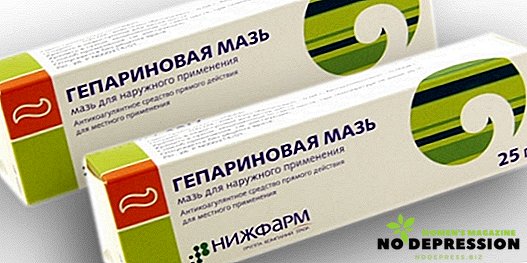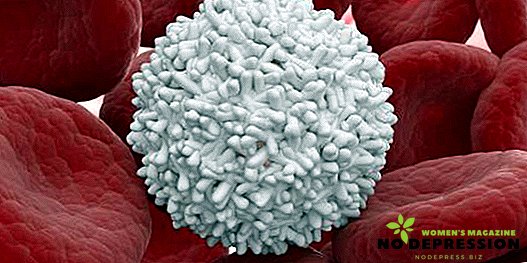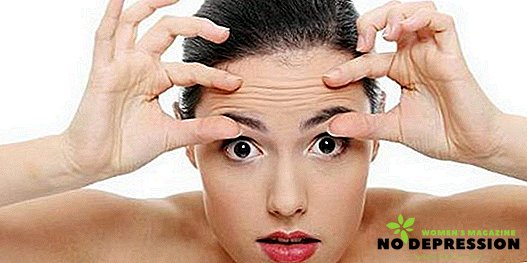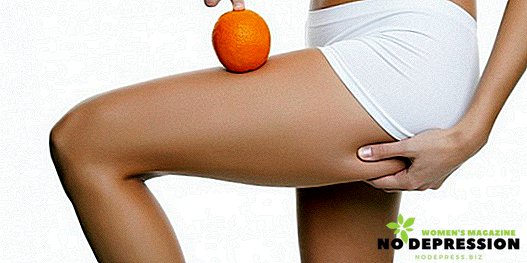A strong blow to the head can cause brain concussion. In our material we will tell about the main symptoms of concussion, the correct treatment, the consequences.
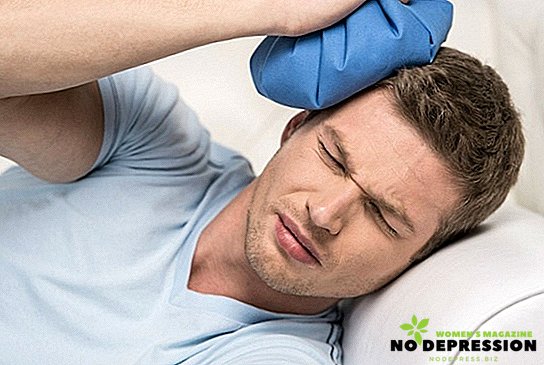
Main features
In the event of injury, the very first signs begin to appear in just a couple of minutes, but delayed ones can make themselves felt even after several weeks or months. Symptoms will be more pronounced in the event of a serious injury - the stronger the blow, the greater the consequences. Also available signs will help determine the degree of shaking:
- easy;
- average;
- heavy
Let's talk more about the symptoms, thanks to them the doctor will be able to more accurately diagnose and prescribe treatment. So, the main symptom is loss of consciousness, which can be short-term or long-term. Other features that affect both adults and children include:
- nausea;
- loss of coordination;
- light hand tremor;
- dizziness;
- confused breathing;
- headache;
- strong reaction to light;
- the skin turns very pale.
It should be noted that the signs of TBI in children are still slightly different from the symptoms in adults. In addition, we have listed above, you should pay attention to, for example, a strong moodiness, sleep disturbance, especially if the baby has fallen or hit hard before. Therefore, parents need to monitor the child without fail, so that at the first symptoms, consult a doctor.
 Do not forget that even infants may have a concussion, but in very rare cases. This can be detected by the following features: the skin turns sharply pale, a cold sweat may appear.
Do not forget that even infants may have a concussion, but in very rare cases. This can be detected by the following features: the skin turns sharply pale, a cold sweat may appear.
At such moments, children become very restless, there are serious problems with sleep. In addition, with a strong blow, you can detect how strongly the fontanel is swollen, the temperature rises, and the look is clouded.
It should be noted that with a slight concussion of the brain, many of these signs may appear later. Therefore, we strongly recommend that after any serious fall contact a doctor immediately. The most prominent signs of mild TBI include: loss of appetite, slight dizziness, heavy sweating, unstable pulse.
How is the diagnosis
Regardless of the profession, it is necessary to clearly understand how the diagnosis is carried out after a strong blow, a fall. Only a doctor can make the correct diagnosis, but it should not be based on the patient's story, but on the exact facts, test results. So, in order not to miss any details regarding the patient's health, a whole consultation of the doctors is carried out: the examination is conducted by an oculist, a neurosurgeon, a neuropathologist.
 In the case of a correct diagnosis, the patient’s condition can be improved in just a couple of weeks. Additionally, in addition to the examination, they can order an ultrasound scan, MRI, tomography or radiography.
In the case of a correct diagnosis, the patient’s condition can be improved in just a couple of weeks. Additionally, in addition to the examination, they can order an ultrasound scan, MRI, tomography or radiography.
Each of these methods is aimed at determining edema inside the skull, if such has arisen after the injury, displacement of bones, hematomas, hemorrhages. In the case of pronounced TBI, hospital treatment is prescribed, although in the case of a mild concussion, it is possible to undergo treatment at home.
It is also important after the treatment for several months to monitor the patient's condition in order to exclude the occurrence of serious consequences of injury.
First aid after injury
After a bruise or any head injury that could lead to a concussion, you need to carefully monitor the condition of the victim. If you find at least one of the above signs, it is imperative to go to a traumatologist.
But you need to spend a few manipulations and before the arrival of the ambulance. First of all, it concerns peace - put the patient down, put a small pillow under your head, remove all clothing that is hampering your breathing, such as a tie, provide fresh air.
 If a person is already unconscious, it is better not to touch him, since the slightest movement can cause dislocation of the bones in the event of a spinal fracture, which often happens with serious injuries.
If a person is already unconscious, it is better not to touch him, since the slightest movement can cause dislocation of the bones in the event of a spinal fracture, which often happens with serious injuries.
It is necessary to put the victim on his right side, bending his left leg and arm, this will allow a person in the presence of vomiting not to choke with the masses. Constantly observe pressure and pulse, because in the absence of breathing you will have to carry out a heart massage.
If there are wounds on the head, it is necessary to treat them with hydrogen peroxide, bandaged. At the place of impact on the head, attach the ice in a package or a package of frozen vegetables, fruits, ice cream. The cold leads to a narrowing of blood vessels, which means it will help to remove the swelling faster.
Treatment of moderate to severe concussion of the head is carried out exclusively in a hospital setting for at least a week, and during all this time it is important to observe bed rest. Further, about two weeks out-patient treatment is carried out - during this period it is undesirable to read, watch TV, communicate a lot, and lead an active lifestyle.
How is the treatment?
After scoring the diagnosis, the victim is placed in either the neurological or neurosurgical (in severe cases) department. In the first five days, strict bed rest is prescribed.
If it is irresponsible to approach this, to violate the prescribed treatment, quite negative consequences can develop: severe memory impairment, bouts of aggression, general emotional instability.
When you stay in the hospital, doctors will monitor the patient's condition constantly. During this period, treatment will be aimed at improving the work of the brain, removing pain, removing from a stressful situation. To do this, they will use such groups of drugs as:
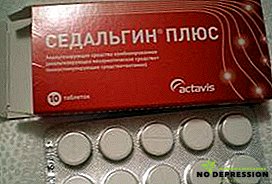 Painkillers, for example, Sedalgin or Analgin.
Painkillers, for example, Sedalgin or Analgin.- For the elimination of dizziness: Bellaspon or Mikrozer, Bellaspon.
- Soothing preparations based on plants: valerian, motherwort.
- Tranquilizers, for example Rudotel.
- To improve and normalize sleep: Reladorm.
- To normalize blood circulation in the head, it is necessary to combine nootropic and vasotropic drugs, for example Picamilon with Cavinton.
- To improve the general condition, Vitrum may be prescribed.
- To improve the brain can not do without ginseng tinctures, will help means Saparal.
With the right treatment, the condition of the victim will improve in just a couple of weeks, but many medicines must be taken for at least a month. After at least six months, and more often up to a year, full recovery occurs.
Within 12 months after the injury, the victim must be under constant medical supervision - you need to visit the therapist at least once every three months, which will minimize the risk of complications.
Dangerous effects after shaking
Previously, doctors believed that the effects of trauma were observed in 40% of people. However, today this figure is fixed at 5%. This is due to the fact that earlier those who received a concussion were included in the number of people who acted with a concussion. And this is a more serious injury that requires long and complex treatment, and often after it, serious complications are possible for a long time.
Early consequences are very rare, mainly due to the fact that during the first two weeks after the injury, the process of brain destruction continues. But post-traumatic epilepsy occurs during the day after injury. Meningitis is very rare, but it should be feared in the first couple of days after the incident.
There are also other possible consequences that may occur during the next 30 years:
- Vegetative dystonia. It is a disorder of the nervous system, which can cause disruption of the vessels and the heart. As a result, all organs, including the brain, may be affected.
- Emotional disturbances, manifested by depression, bouts of activity or aggression, tearfulness, and a person can consider their behavior normal. This behavior is associated with disturbances in the cerebral cortex, which is responsible for behavior and emotions.
- Memory impairment, decreased concentration, change in thinking. Occurs due to the death of neurons.
- Serious headaches caused by impaired blood circulation after injury.
In addition, after such serious injuries, those parts of the brain that are responsible for the perception of information suffer. In this case, severe dizziness, nausea, and gait can sometimes occur.
Whatever the symptoms, they should be a reason to go to the doctor immediately. No need to be treated with folk remedies, because this can lead to the opposite effect - only a doctor can prescribe the correct treatment with drugs that can improve brain function.
In addition, during the first year after injury, it is best to avoid any exertion that can cause serious complications. You can also do physical therapy, which normalizes blood flow to the brain. Also remember about the observance of sleep patterns, often walk, while overheating during this period is undesirable.


 Painkillers, for example, Sedalgin or Analgin.
Painkillers, for example, Sedalgin or Analgin.

